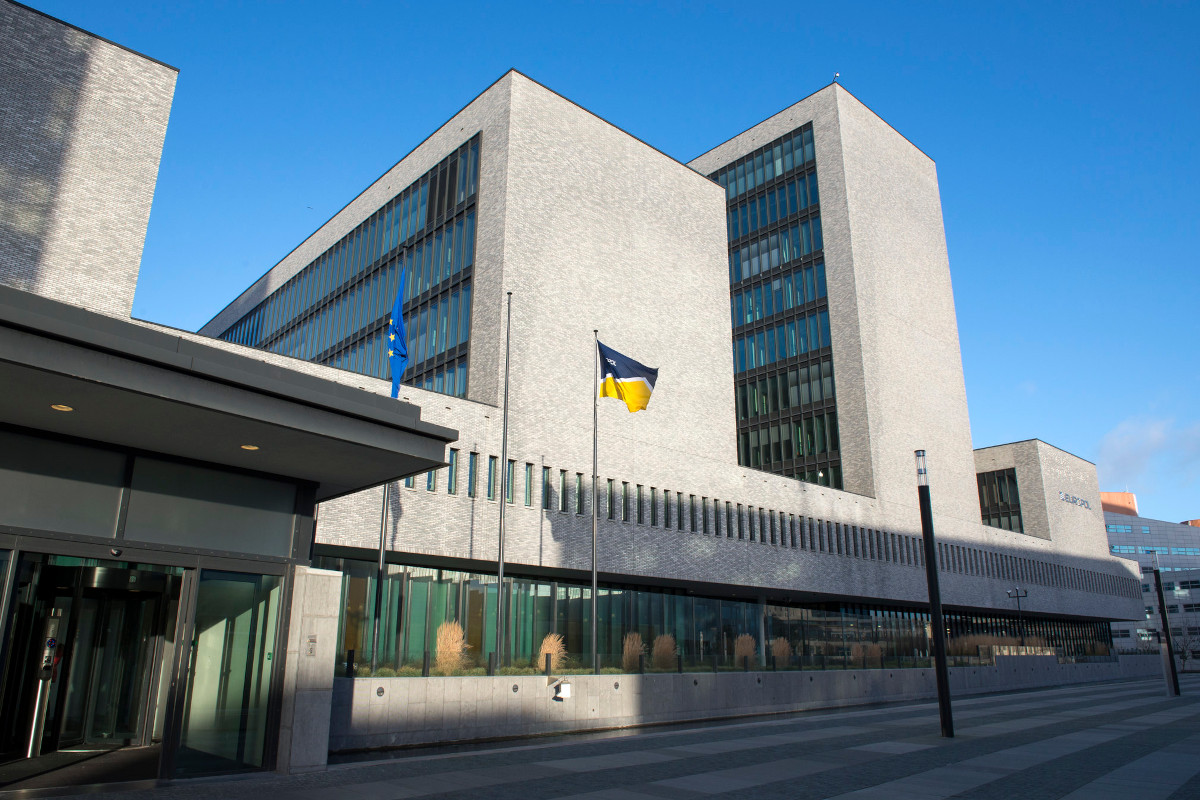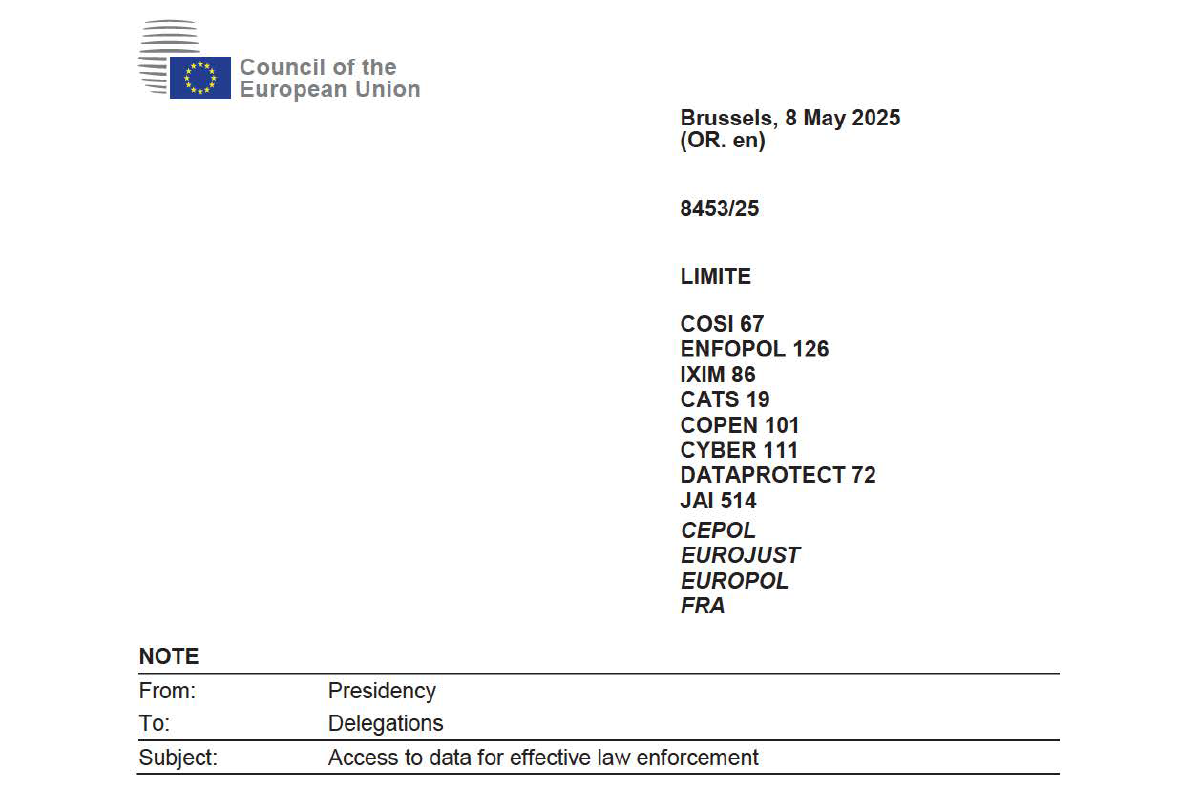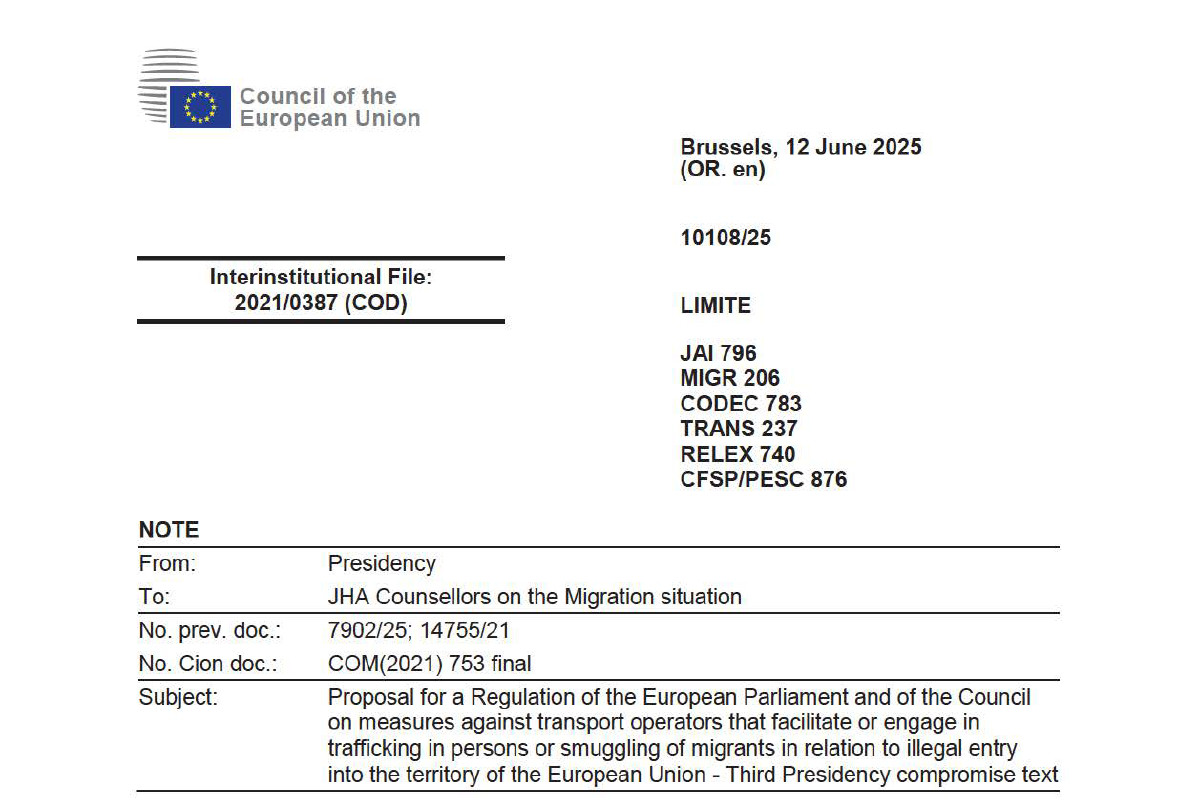Activist demands compensation from Europol for illegal surveillance
Topic
Country/Region
24 June 2025
A Dutch political activist last week filed a legal complaint with EU police agency Europol, seeking compensation for the unlawful processing and handling of his personal data. The move is likely to lead to litigation at the European Court of Justice to determine Europol’s liability. This case could help clarify the rights of individuals seeking redress against Europol’s growing surveillance and data-gathering efforts.
Support our work: become a Friend of Statewatch from as little as £1/€1 per month.
 Image: Ministerie van Buitenlandse Zaken, CC BY-SA 2.0
Image: Ministerie van Buitenlandse Zaken, CC BY-SA 2.0
So far, no accountability for Europol’s illegal surveillance
Imagine learning that the police have labeled you a terrorist because of your support for movements committed to anti-racism, the environment and a free Palestine.
This is what happened to Frank van der Linde in 2018 when he went to pick up his post. He had requested his police file, which showed that the Dutch police had added him to a terrorist watchlist to monitor his movement and his social media posts.
What’s more, the Dutch police had informed all other European law enforcement authorities to keep tabs on him, by sharing his data with EU police agency Europol.
The Dutch police had sent van der Linde’s data to Europol with the heading “crime area terrorism.” They later informed the activist in a letter (pdf), that the reason for the terrorism label was that they had no other choice. The agency can only process information about individuals suspected of serious crime or terrorism. It has no remit for anything to do with protest, public order or activism.
Van der Linde subsequently requested his file from Europol. After consulting with the Dutch police, they refused access. Van der Linde filed an appeal with the European Data Protection Supervisor (EDPS), responsible for supervising Europol’s use of personal data.
Two years later, the EDPS decided that Europol should have given van der Linde his file. Instead, the police agency had tried to delete all evidence of the data they stored about him.
Enforcement of the EDPS’ decision has been put on hold until a Dutch court decides, in a separate case, whether the Dutch police should grant access to all the information they shared with Europol. That decision, however, has been delayed by the police withholding access to information.
This has happened so frequently in van der Linde’s multiple cases against the police that the Court of Amsterdam decided last year to appoint an independent expert to verify that no more information is being stored about him.
Demand for compensation from Europol
A letter to Europol from van der Linde’s lawyers, sent last week and seen by Statewatch, says that the activist “formally holds Europol liable for all damage he has suffered as a result of Europol's actions.”
He is seeking compensation for the immaterial damage he suffered from Europol, such as the impact on his reputation and mental health.
The letter also demands that the agency pay compensation for the five years he has spent seeking access to his file.
The demand is relevant not just for van der Linde, but for anyone requesting access to their file or challenging a refusal of access.
Does Europol have your data?
A subject access request can help you find out.
The letter gives Europol a deadline of 1 July to accept liability and commit to paying compensation. If the agency refuses, the complaint will head off the Court of Justice of EU (CJEU).
If that happens, the Court of Justice may rule in favour of the claim, but it could also reject it, or restrict the scope of compensation.
That could have a chilling effect, making people less likely to seek redress for unlawful surveillance, knowing that the agency will try to delay the process and hide information, without facing consequences for their unlawful actions.
If the case goes to the CJEU, the court would also rule on the unlawful processing of data by the agency, which is restricted by law to only process information about serious criminal and terrorist offences - not pacifist political activism.
Our work is only possible with your support.
Become a Friend of Statewatch from as little as £1/€1 per month.
Further reading

EU: Definition of “potential terrorists” opens door to broad information-sharing
EU member states can now collect and share information on “potential terrorists”. This category is based on a new informal definition that was agreed with no democratic scrutiny. While claiming to target those who may engage in political violence, there is potential for far broader application.
“Call them crazy”: Criminalisation of activists undermines rule of law in the EU
The Dutch police continue to disregard the rule of law to criminalise the pacifist activist Frank van der Linde. In recent years, his personal data has been sent to Europol, he has been labelled a terrorist, and police have suggested he be referred to a psychiatric facility. Far from an isolated case, van der Linde’s story shows just how far police in Europe will go to criminalise the right to protest and stifle political dissent.

Europol told to hand over personal data to Dutch activist labelled "terrorist" by Dutch police
Europol has been admonished by the European Data Protection Supervisor for the second time this year, for failing to comply with a request from a Dutch political activist to access the data held on him by the policing agency. The European Data Protection Supervisor's investigation found a series of failings by the agency to comply with the law, at a time when its powers to gather and process data have been vastly increased by a recent legal reform.
Spotted an error? If you've spotted a problem with this page, just click once to let us know.

